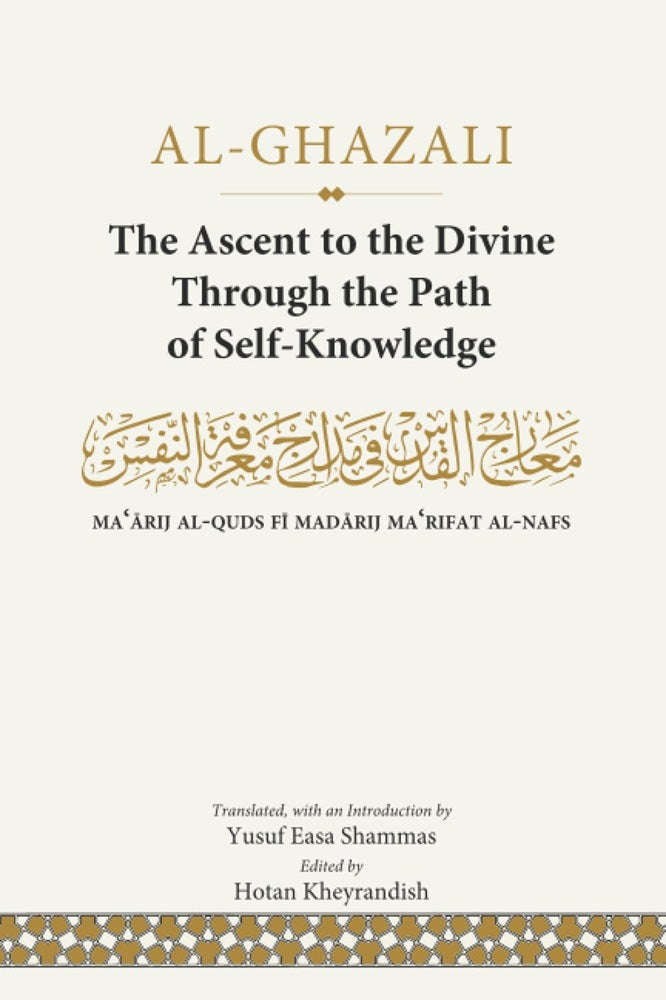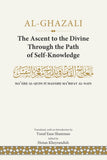The Ascent to the Divine Through the Path of Self-Knowledge - Al-Ghazali - 9789672795094 - Islamic Book Trust
- Regular price
- RM53.55
- Regular price
-
RM63.00 - Sale price
- RM53.55
- Unit price
- per
Product Description
Ma‘ārij is not completely different in substance, vocabulary and/or style from some other writings by al-Ghazali. Most of his The Wonders of the Heart (Ajā’ib al-Qalb), for instance, is almost identical with most of the first half of the book.
In a general way it can be considered as a somewhat more developed combination of a number of ideas and views found scattered in several of al-Ghazali’s other writings. The section on prophethood, for example, is more developed and exhaustive in Ma‘ārij. The preface offers a clear concise description of the book’s aim and content, namely the knowledge of the Divine through the knowledge of the soul—a psychological approach to theology. The keynote is the hadith quoted more than once in the preface itself, which reads, “Whoever knows himself knows his Lord.”
The book is intelligible. Moreover it exhibits a refined religious sense that some portions of Ihyā’ fail to exhibit. His theological views and interpretations are lofty and advanced. One example is his belief concerning the bliss and misery in the life to come, which he completely places on a spiritual level. The bliss, according to him, is a sublime spiritual experience of God—the enjoyment of meeting and witnessing Him, while misery is deprivation of that experience. All carnal pleasures and compensations mentioned in the Qur’an are ignored.
Yusuf Easa Shammas, the translator, was born in 1908 of Arabicspeaking Protestant parentage in Midyat, a Syriac-speaking town in the section of Mesopotamia that is in Turkey. In 1947, he attended the School of Religious Education of the Hartford Seminary Foundation, where in 1949 he earned an MA degree in Religious Education. The subject matter of this book is his theses he submitted to Hartford Seminary for his PhD in 1958. His unique and vast multifarious life, in his own words, has been added on pages ix to xvi in this book.


